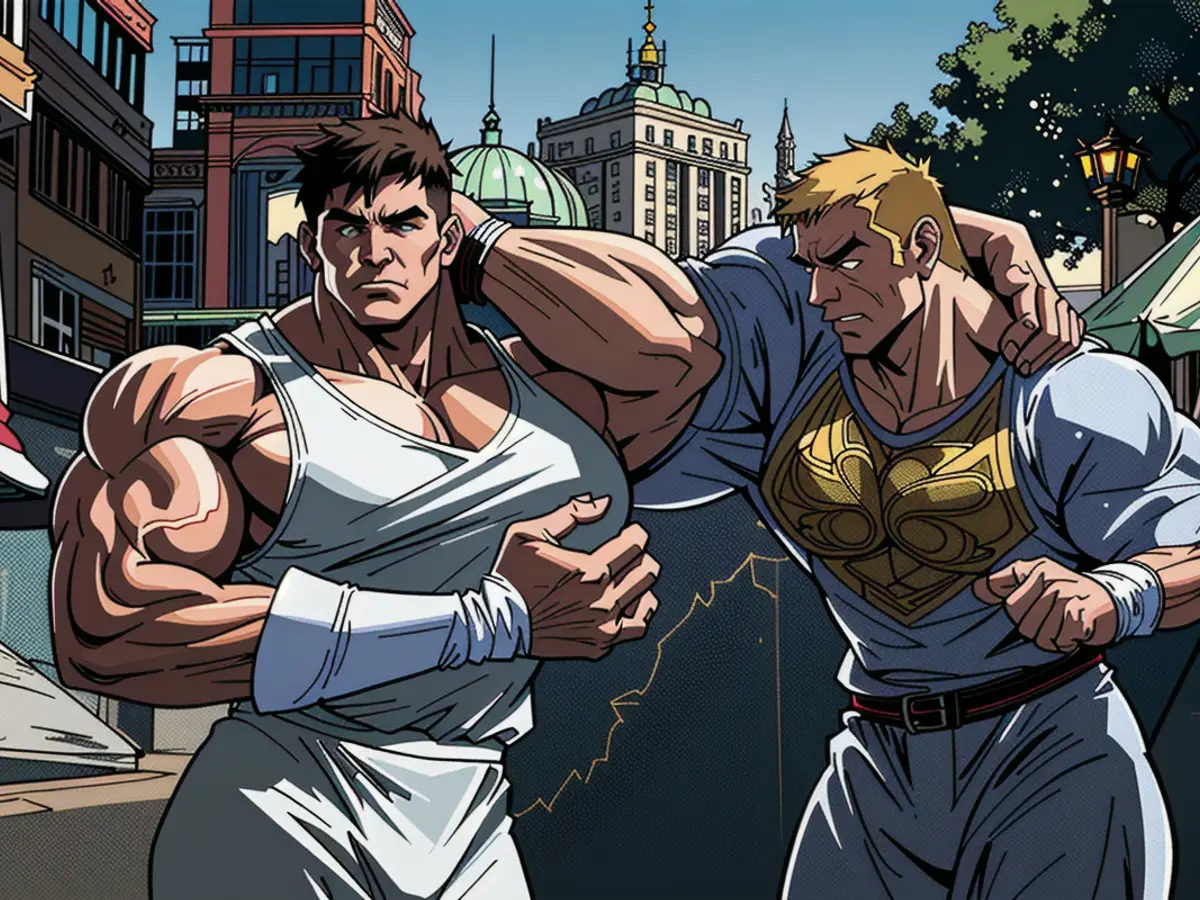European hotspot once known for hedonistic parties; present-day Generation Z seeks alternative forms of enjoyment.
In the heart of Berlin, the dance floor goes on all night as clubs like Berghain and Wilde Renate stay packed with club-lovers, but the city's nightlife is facing a challenge - the 'Clubsterben.' Rising rents, gentrification, and changing party dynamics have hit the scene hard, causing legendary clubs to shut down.
Yet, there's a silver lining. With the old guard slipping away, a brand-new generation is stepping up to revitalize Berlin's club scene. They're breaking away from the mainstream, creating a fresh, diverse, and freewheeling party culture that's attracting young revelers far and wide.
The pandemic might have kept clubs closed for a while, but it gave birth to an underground movement of illegal open-air raves. These parties buzzed in parks, open spaces, and abandoned areas, drawing in the younger crowd that craved an escape from the strict and serious energy of the old-line clubs.
Some of those venerable clubs dare not ignore this shift. Take Suicide Circus, an institution in Berlin that rechristened itself Lokschuppen earlier in 2024. The club turned over parties to new event collectives, bringing in a younger crowd with a mix of eclectic music and art performances.

For Emiko Gejic, spokesperson for the Berlin Club Commission, this new wave is ushering in a different style of club culture, with POC collectives, queer-based collectives, and FLINTA collectives (female, lesbian, intersex, non-binary, transgender, and agender) leading the charge. These groups create safer spaces that host a wider variety of music and events, transforming the scene into something much more artsy and inclusive.
Take Aziz Sarr, who grew up in Berlin's club scene. Back in the day, his father was a DJ, and he started his own parties more than a decade ago with the collectives Freak d'Afrique and RISE, both focused on the hottest music coming out of Africa. Last year, he opened MAAYA, a space next door to Lokschuppen, celebrating the diversity that Berlin's scene has come to represent.
Still, the younger crowd isn't stepping out as much as they used to. Whether due to higher costs of living, healthier lifestyles, or a desire for a less exclusive and more carefree atmosphere, the old-school party scene isn't resonating quite as strongly with today's youth. And that's perfectly fine because curiosity is stirring.

From Arabic queer pop events to underground parties, Berlin's nightlife keeps reinventing itself, fostering an environment where everyone can find a niche. The city remains a beacon for party-lovers and electronic music enthusiasts, drawing in revelers who long for a taste of the unusual and the unexpected.
Things might change, but the spirit of Berlin's nightlife remains unblemished - vibrant, resilient, and always moving forward. As DJ, producer, and Berlin club veteran Sven von Thülen once put it, "Maybe the best times are over, but I'm not sure where it's still better, I'll say it that way." And that's enough to hold a torch for Berlin's unstoppable club scene.

Enrichment Data:
Challenges Facing the Berlin Club Scene:- Gentrification and Rising Rents: These factors have led to a homogenization of club culture, making it harder for smaller, independent clubs to stay afloat. The rising cost of living in Berlin has also made clubbing a luxury for many young people.- Algorithmic Influence: The increasing influence of algorithms in music streaming platforms can make it challenging for new artists to gain visibility, limiting the variety of acts that clubs can book.- Shifting Party Dynamics: The tastes of club-goers are evolving, with some favoring niche or underground experiences.
New Generations Shaping Berlin's Club Scene:- Inclusive and Diverse Culture: New collectives are focusing on identity, creating safer spaces, and fostering a more diverse music scene in Berlin's clubs.- Grassroots Movements: Artists are taking matters into their own hands, creating their own platforms and communities, such as the growing grassroots R&B scene in Berlin.- Strategic Inclusion and Exclusion: Clubs balance inclusion and exclusion to create atmospheres that feel emotionally charged and liberating, ensuring the crowd feels connected and part of something meaningful.- Curated Environments: Berlin's clubs have a reputation for creating unique and curated environments. These spaces foster connections and social bonding among participants, which is crucial for their success.

- Despite the challenges known as 'Clubsterben' in Berlin, a new generation is revitalizing the club scene, breaking away from the mainstream and creating a diverse, freewheeling party culture that attracts young club-lovers worldwide.
- The silver lining from closed clubs during the pandemic gave birth to an underground movement of illegal open-air raves, appealing to the younger crowd seeking an escape from the old-style clubs.
- Clubs like Suicide Circus, now known as Lokschuppen, have recognized this shift and brought in a younger crowd by partnering with new event collectives, offering a mix of eclectic music and art performances.
- Berlin's nightlife remains a beacon for party-lovers and electronic music enthusiasts and continuously reinventing itself through diverse party offerings, such as Arabic queer pop events and underground parties that cater to various niches.








